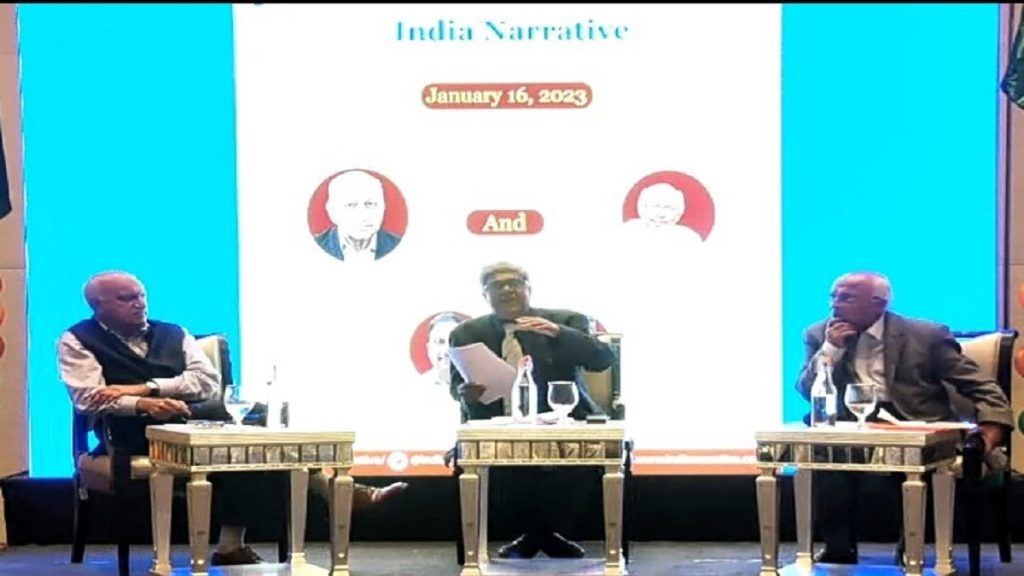New Delhi: MJ Akbar and Syed Badrul Ahsan, two acclaimed journalists of India & Bangladesh respectively, spoke at length about growing bonhomie between two neighbouring countries and how their combined strength is spurring the rise of South Asia.
The duo were speaking at a discussion event on “Past, Present & Future of Bangladesh-India relations” organized by Indian Narrative in Kolkata on January 16.
MJ Akbar, former Union Minister and veteran journalist showered praise on Sheikh Hasina government for restoring democracy in Bangladesh, much like her father spearheaded the fight for freedom.
He also said that Bangladesh was moving towards becoming a ‘modern’ nation.
Syed Badrul Ahsan, Dhaka-based author and veteran journalist said that democracy & secularism have developed deeper roots in Bangladesh under Sheikh Hasina rule.
Talking about Indo-Bangla relation, Ahsan said that many predicted ‘downturn in ties’ when BJP came to power but to their discontent, the relations between Awami League & Modi govt have been grown stronger.
“Our relations with India are on an upward swing. India’s exports are $14 billion to us but ours are lesser”, Ahsan told the gathering.
The two journalists also spoke on some historical events including Partition of India & Bangladesh war of liberation. MJ Akbar described Bangladeshi PM Sheikh Hasina as a ‘Bangla braveheart’.
“Sheikh Mujibur Rahman led a revolt to free East Pakistan and helped create Bangladesh in 1971. Then, his daughter Prime Minister Sheikh Hasina led a second revolution by defeating dictatorship and re-establishing democracy,” said Akbar.
“The 1971 war was not only a war for liberation. It was also a war of ideology,” said former RS MP.
Ahsan said that Bangladesh was a strong state and it is evident in its foreign policy also.
“We have staved off pressure from China. We do not have Hambantota nor a Gwadar port. This shows that we make our own decisions,” he said.
Touching upon Bangladesh-Pakistan ties, the Bangladeshi author said that the latter has chosen to remain in denial and has never apologized for its genocidal actions of 1971. This was apparently the reason for frosty relations between the two countries.
He however added that many people in Bangladesh still think that the partition from India was a mistake as it gave Bengalis ‘more pain than gain’.

